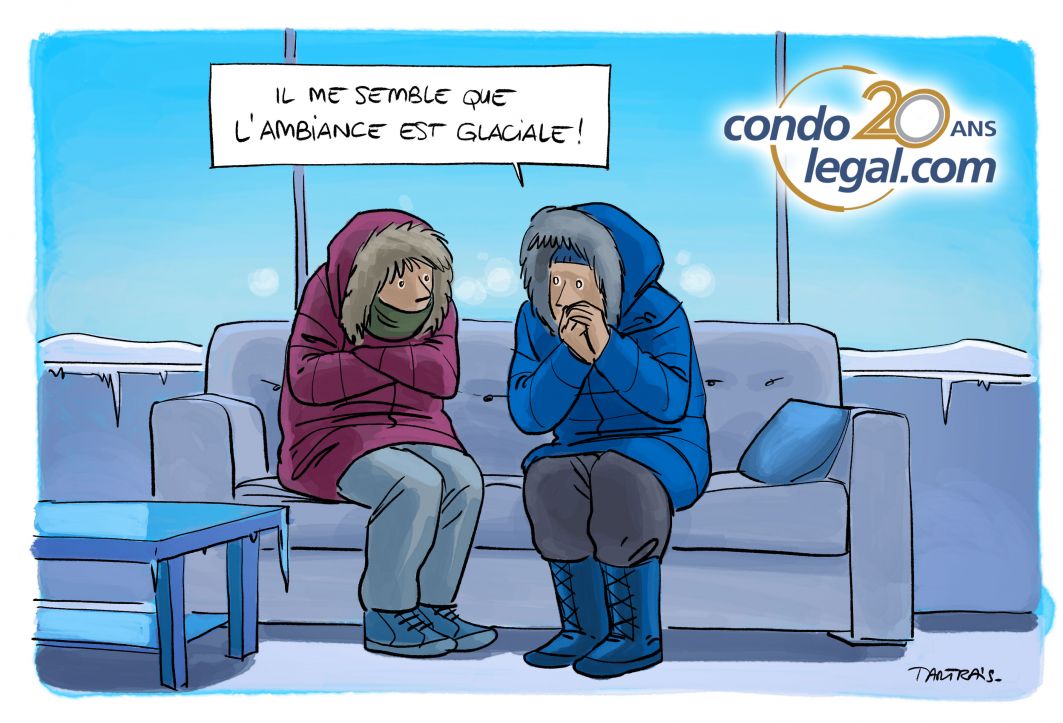
In France, co-ownerships are undergoing a major transformation with strict energy renovation requirements. The Climate and Resilience law of August 22, 2021, mandates co-owners to plan renovations over ten years to enhance building energy performance. While this regulation does not apply to Quebec, it could still inspire discussions on the future of co-ownership buildings here. As the energy transition becomes a global priority, Quebec could consider measures to improve energy efficiency in co-ownership buildings.
An aging and energy-consuming housing stock
Many co-ownership buildings in France were built between the post-war period and the 1970s. According to the national housing agency (ANAH), two-thirds of French co-ownerships were constructed before 1973, posing challenges in terms of maintenance and energy efficiency. The confederation of small building enterprises (CAPEB) estimates that modernizing these buildings could require an investment exceeding €20,000 per apartment, or approximately $30,000 CAD.
Currently, 15% of co-ownership units are classified F or G on the energy performance diagnosis (DPE) scale, an obligatory indicator in France when selling or renting a unit. These units are considered excessively energy-consuming, leading to high heating costs and a significant environmental footprint.
Housing units soon to be banned from rental
One of the most restrictive aspects of this reform is the gradual ban on renting the least energy-efficient properties:
The French government's goal is to ensure that the entire housing stock reaches at least a D rating within ten years.
A logistical and financial challenge for co-ownerships
Despite these requirements, co-ownership renovations are progressing slowly. In 2023, ANAH supported the renovation of 623,790 housing units, but only 51,000 of them were in co-ownerships. The main obstacle remains the high cost of the work and the collective decision-making process within co-ownership boards—an issue also familiar in Quebec.
Some co-owners hope that the government will relax these constraints. However, Valérie Létard, the French minister of housing, recently ruled out any modifications or moratoriums, though she did mention the possibility of extended deadlines for co-ownership
A model that could inspire Quebec?
Although Quebec does not have a direct equivalent to the DPE (Energy Performance Diagnosis) or rental bans for poor energy performance, issues related to the energy efficiency of co-ownership buildings are gaining increasing importance.
Bill 41, adopted and enacted in March 2024, could mark a turning point. This law establishes an environmental performance rating for certain buildings and provides for:
In short, Quebec is also moving towards greater regulation of energy performance in the real estate sector, though the constraints are not as strict as in France.
Towards a new era for Quebec co-ownerships?
France has opted for a highly regulated approach, forcing co-owners to take action under the threat of losing the ability to rent their properties. In Quebec, the strategy currently relies more on incentives and disclosure requirements, but regulatory developments could eventually lead to stricter obligations.
In this context, it is essential for Quebec co-ownership syndicates to anticipate these changes by integrating energy efficiency considerations into their management plans and exploring available financial aid.
Conclusion
While France is imposing a rapid transformation of its co-ownership housing stock, Quebec is taking a more gradual but structured approach with Bill 41. Although Quebec co-ownerships are not yet subject to such strict obligations, they would benefit from closely monitoring the French model, which could foreshadow certain future local regulations.
 WHAT YOU SHOULD KNOW ! To learn more about the obligations of co-ownerships in France and the challenges of energy renovation, read the article published in Informations rapides de la copropriété: DPE, audit, PPPT: What are the obligations of co-ownerships?
WHAT YOU SHOULD KNOW ! To learn more about the obligations of co-ownerships in France and the challenges of energy renovation, read the article published in Informations rapides de la copropriété: DPE, audit, PPPT: What are the obligations of co-ownerships?

